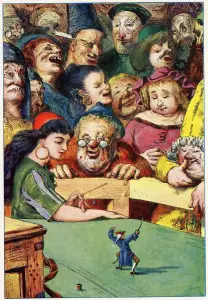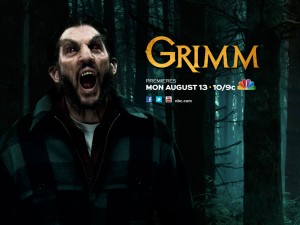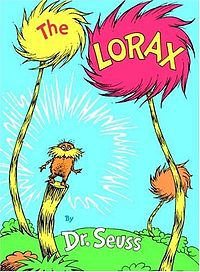 For reasons that escape me, I’ve at least 3 editions of Gulliver’s Travels. I haven’t read it, have no plans to read it. Just like I have no plans to read Treasure Island, Little Women, or Men, Winnie the Pooh, Peter Pan, Kidnapped, anything by Kipling, or Uncle Tom’s Cabin. Is the last even a children’s title? These are considered classics. My question–who determines such things? Who designates one book over another as a classic? How did The Swiss Family Robinson turn into a venerable read? Or Heidi? Sales? I doubt it. It had to be some dry critic of eons past who bestowed upon Heidi the crown of ‘classic.’ I’ve tried numerous times to read the book, but Shirley Temple keeps intruding her voice echoing, “Grandfather, Grandfather” over and over. That reminds me of two others I can’t seem to get past the first few chapters–The Little Princess, and The Secret Garden. Shirley’s half sobbing shouts, “Father, Father, don’t you know me? You MUST know me, I’m Sara, I’m your Sara!” as Queen Victoria wheels by makes drab the narrative of the original Princess. Naturally all ends well within the movies. I heard a rumor, however, that in the book, the father is really dead and never returns to poor Sara. No way will I crack open that book to be dashed in the end.
For reasons that escape me, I’ve at least 3 editions of Gulliver’s Travels. I haven’t read it, have no plans to read it. Just like I have no plans to read Treasure Island, Little Women, or Men, Winnie the Pooh, Peter Pan, Kidnapped, anything by Kipling, or Uncle Tom’s Cabin. Is the last even a children’s title? These are considered classics. My question–who determines such things? Who designates one book over another as a classic? How did The Swiss Family Robinson turn into a venerable read? Or Heidi? Sales? I doubt it. It had to be some dry critic of eons past who bestowed upon Heidi the crown of ‘classic.’ I’ve tried numerous times to read the book, but Shirley Temple keeps intruding her voice echoing, “Grandfather, Grandfather” over and over. That reminds me of two others I can’t seem to get past the first few chapters–The Little Princess, and The Secret Garden. Shirley’s half sobbing shouts, “Father, Father, don’t you know me? You MUST know me, I’m Sara, I’m your Sara!” as Queen Victoria wheels by makes drab the narrative of the original Princess. Naturally all ends well within the movies. I heard a rumor, however, that in the book, the father is really dead and never returns to poor Sara. No way will I crack open that book to be dashed in the end.
grimm
What’s Up With All The Filmed Fairy Tales?

A promo advertising a film about to be released called Hansel and Gretel, has me shaking my head and asking why now? Why all the fairy tale inspired, interpreted, twisted, films and TV now? They’ve been around for centuries and other than Disney, pretty much ignored. Besides Snow White, Disney has a tendency to lighten up its fairy tale fare. Not today’s offerings. Some seem to try to find the grisliest way to interpret what are quite violent stories to begin with. A few years ago a film was made about the Grimm brothers, and never made a sound as it sunk into the rental pool. Since that time, two TV shows, two new Snow White films, and now a Hansel and Gretel movie. None of them stick to the original sources.
When Did Children’s Books Become Political Fodder?
 I am not taking a political point of view here, just asking the question of just how and when books written by the likes of Dr. Seuss become political footballs for individuals to kick around, trying to make some kind of cultural point? I don’t remember in my childhood any group of people asserting that Dick and Jane represented a right wing notion of conformity, or Mary Poppins is anti banks. Of course many books were written in an attempt to give children life lessons and points of morality, but to classify any one of them as subversive to one group or people or another, wasn’t dreamed of. Lately we’ve seen a lot of children’s entertainment come under fire by various groups and individuals. One of the Telly Tubbies was said to represent a gay individual, Sesame Street has come under attack for stuff groups disapprove of–The Cookie Monster–promotes bad eating habits. Bert and Ernie–two male bachelors share an apartment and that can only mean one thing, right? The entire show is blamed for ADD. Looking more closely at the issue, I suppose some people will have difficulties with any work of literature–Alice in Wonderland has been banned in China for various strange reasons, and of course Twain’s Huckleberry Finn is pulled from classrooms for its language. It’s unacceptable today, even thought it was written over 100 years ago.
I am not taking a political point of view here, just asking the question of just how and when books written by the likes of Dr. Seuss become political footballs for individuals to kick around, trying to make some kind of cultural point? I don’t remember in my childhood any group of people asserting that Dick and Jane represented a right wing notion of conformity, or Mary Poppins is anti banks. Of course many books were written in an attempt to give children life lessons and points of morality, but to classify any one of them as subversive to one group or people or another, wasn’t dreamed of. Lately we’ve seen a lot of children’s entertainment come under fire by various groups and individuals. One of the Telly Tubbies was said to represent a gay individual, Sesame Street has come under attack for stuff groups disapprove of–The Cookie Monster–promotes bad eating habits. Bert and Ernie–two male bachelors share an apartment and that can only mean one thing, right? The entire show is blamed for ADD. Looking more closely at the issue, I suppose some people will have difficulties with any work of literature–Alice in Wonderland has been banned in China for various strange reasons, and of course Twain’s Huckleberry Finn is pulled from classrooms for its language. It’s unacceptable today, even thought it was written over 100 years ago.
The Best Books Of All Time
I asked myself, what does that mean? The best books of all time? Best fiction? Best nonfiction? Both? From what time frame–the beginning of time–do cave drawings count? Books–are plays included, how about poems, religious tomes, children’s books, what languages, the questions were endless, with no definitive answer. The lists I saw ranged from strict … Read more
